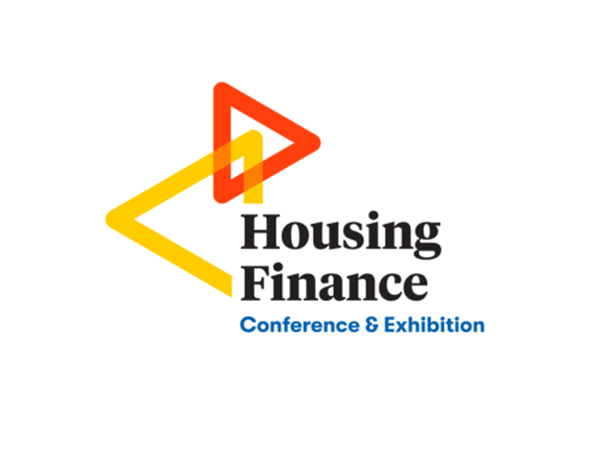This resource was produced for the NHF by Neil Morland and Co Housing Consultants.
Introduction
Being able to afford to pay rent and service charges is key to residents being able to sustain their tenancy. Housing associations do a lot of work to help residents make the most of their money, providing help with budgeting, debt, saving, borrowing, banking and much more, so that residents will be able to have enough money to pay their housing costs. How much a resident can afford to pay for their housing costs will vary considerably, depending on the types of home they live in and the individual financial circumstances. Carrying out affordability checks when allocating a home gives residents and housing associations confidence that all relevant housing cost can be paid for, enabling the best possible start to a tenancy.
The law and affordability checks
The allocation of social rented housing is a public law matter, for both housing associations and local authorities. This extends to both mutual exchanges and management transfers. Therefore, any decision made about the allocation of social rented housing, based on whether someone can afford to pay the housing costs associated with the proposed tenancy, can be challenged in the courts. If a decision about an affordability check has been made irrationally, illegally or failing to follow public law procedural requirements, the courts can overturn it and ask a housing association to carry out a new affordability check.
This means affordability checks must be carried out using relevant and authoritative evidence, having full regard to any stipulations set down in law as to what can and cannot be considered when affordability checks are carried out. Furthermore, where there is inconclusive evidence as to whether an applicant could afford a property being allocated to them, they should be given the benefit of the doubt. Finally, when there is evidence that an applicant cannot afford the property being allocated to them, they should be given an opportunity to comment on the facts of the affordability check and provide any additional information, prior to a final decision being made about whether the property is affordable for the applicant.
When an affordability check concludes that an allocation of property and the associated offer and a tenancy, would not be affordable, housing associations should always inform applicants of any rights they might have request a review of such a decision, make a complaint to the Housing Ombudsman, or pursue a judicial review.
Housing allocations and affordability checks
An affordability check should be completed at the same time as a property is being allocated to an applicant and an offer of a tenancy is being made. The conclusions of an affordability check will help to confirm whether an applicant can truly afford to pay all related charges and costs associated with the property they’re being allocated and the type of tenancy they are being offered. When an affordability check concludes that an applicant cannot afford the property and/or type of tenancy being offered, then the offer should be withdrawn and an alternative offer be made.
Prior to carrying out an affordability check, it’s important to remember that in many instances applicants might have already provided evidence about any outstanding rent arrears, their income and details of any properties owned, to demonstrate that they satisfy qualification criteria to join a housing allocation scheme. The particulars of qualification criteria for each housing allocation scheme varies considerably, so not all of the above will be relevant to every scheme. Nevertheless, as it reduces unnecessary duplication, it makes sense for housing associations to rely on any information an applicant might have provided about their income and expenditure at the initial application stage, to help complete an affordability check at the offer stage.
Rent arrears and affordability checks
Prior to carrying out an affordability check, its sensible to (re)confirm whether an applicant has rent arrears or other property related debts above any cap specified in the housing allocation scheme from which the person is being allocated a home. When taking account of rent arrears and other outstanding property related debts, these should be limited to outstanding current or former rent arrears, service charge arrears or recharges for property related damage. Any liabilities that are statute barred, were not accrued by an applicant or were accrued as a result of financial abuse, should be wholly disregarded.
Housing associations should focus on an applicant’s willingness to repay their arrears and agree a repayment amount that is affordable to an applicant. An arbitrary rent arrears repayment threshold should be avoided, these rarely have any regard to the applicant’s financial circumstances and pursuit of reaching a generic arrears target often can push applicants further into debt. A bespoke rent arrears repayment plan should be agreed with each applicant, if one is not already in place. It is reasonable to expect an applicant to have made three or more consecutive rent arrears payments and for the repayments to be no more than one month behind an agreed repayment schedule, at the point an allocation of social rented houses is being made and a tenancy is being offered.
Practicalities of for carrying out an affordability check
The first thing to consider when carrying out an affordability check is an applicant’s income. This might include:
- Salary.
- Compensation, including fee, commissions, fringe benefits, etc.
- Gains derived from dealing in property.
- Interest earned.
- Rents received.
- Royalty payments.
- Dividend payments.
- Annuities.
- Income from life insurance and endowment contracts.
- Shares.
- Income from a trust.
- Welfare benefits.
Equally important will be to examine an applicant’s expenditure. This might include:
- Rent and service charges for the property allocated to them and the associated tenancy being offered to them.
- Reasonable living expenses (allowance should be made for these to be equal to or greater than Universal Credit standards allowances) for items such as:
- Food.
- Clothing.
- Heating.
- Transport.
- Any other essentials.
- Court fines.
- Council tax.
- TV licence.
- Child maintenance.
- Gas and electricity arrears.
- Outstanding income tax, National Insurance, VAT owed to HMRC.
- Mortgages and loans secured against a home owned by an applicant.
- Hire purchase agreements.
An affordability check must look at whether an applicant has enough income to pay for the nurture and safety of any child that is dependent on them (irrespective of whether or not the child is living with the applicant).
If an affordability check concludes that an applicant is unable to afford to rent social housing, it’s very unlikely that they’ll be able to afford the housing costs associated with rent from a private landlord or buying a home. Therefore, options for help to pay for housing costs from other sources (e.g. Discretionary Housing Payments or from children services when a child is a member of an applicant’s household).
Conclusion
When carrying out affordability checks, housing associations must make sure an applicant would be able to afford the housing costs of the property they are being allocated, without being deprived of essentials such as food, clothing, heating, transport and other essentials specific their circumstances.
After housing costs, an applicant should be left with sufficient income to pay for all other reasonable costs. Applicants who have a child that is economically dependent on them, must after housing costs, be able to afford to meet their financial responsibilities in this regard. An applicant might have a right to pursue judicial review or make a compliant to the Housing Ombudsman about the conclusion of an affordability check.
An objective assessment of an applicant’s income and expenditure, can result in a sufficiently robust affordability check.











